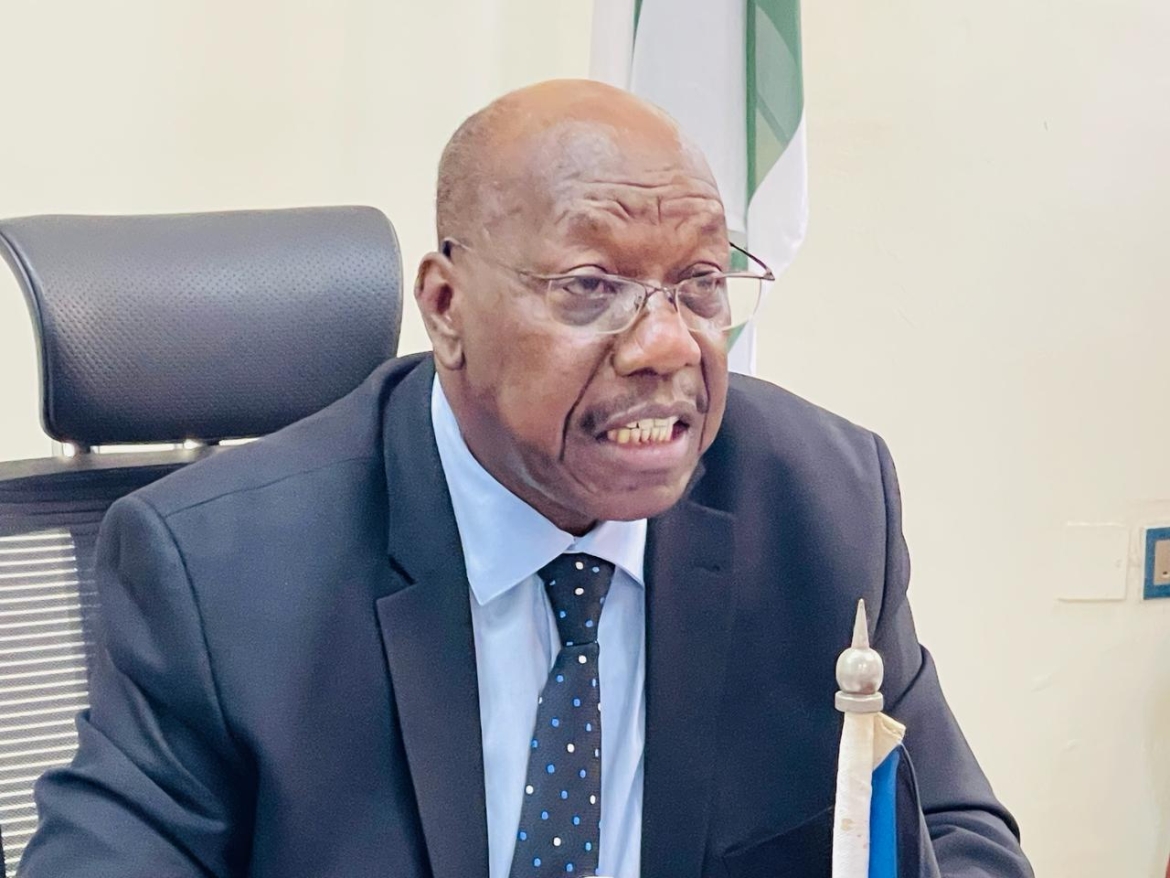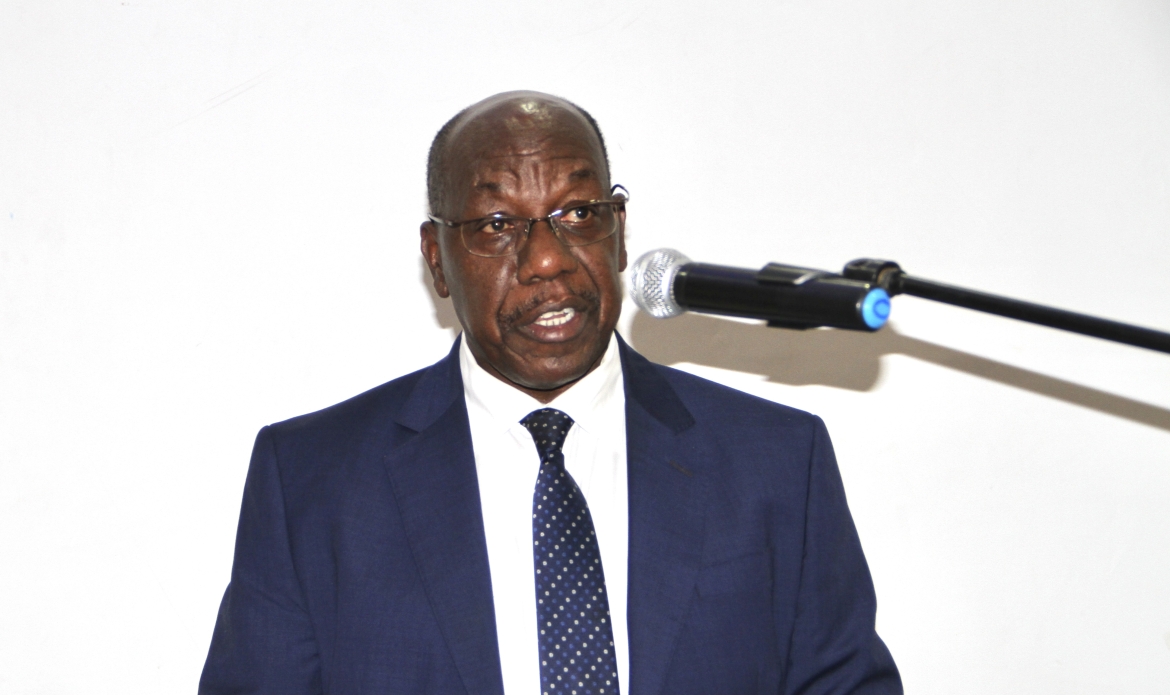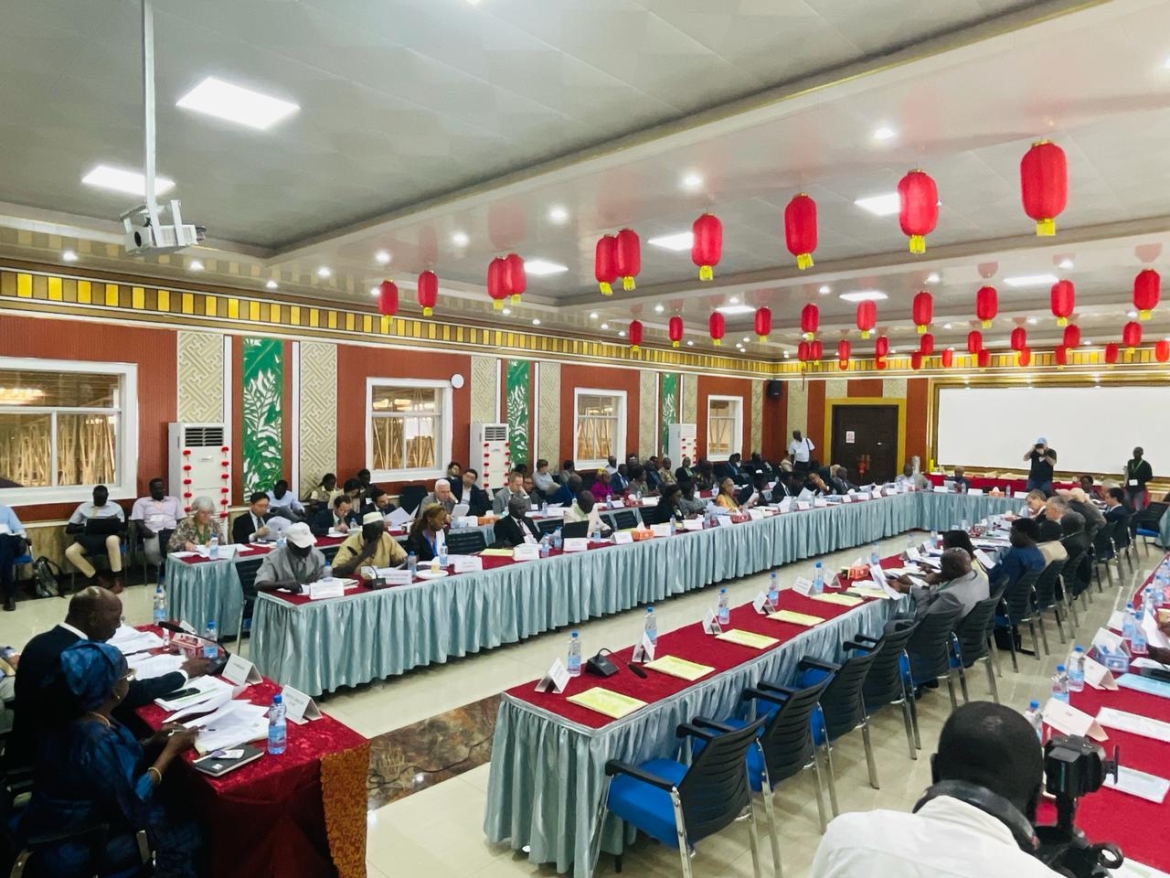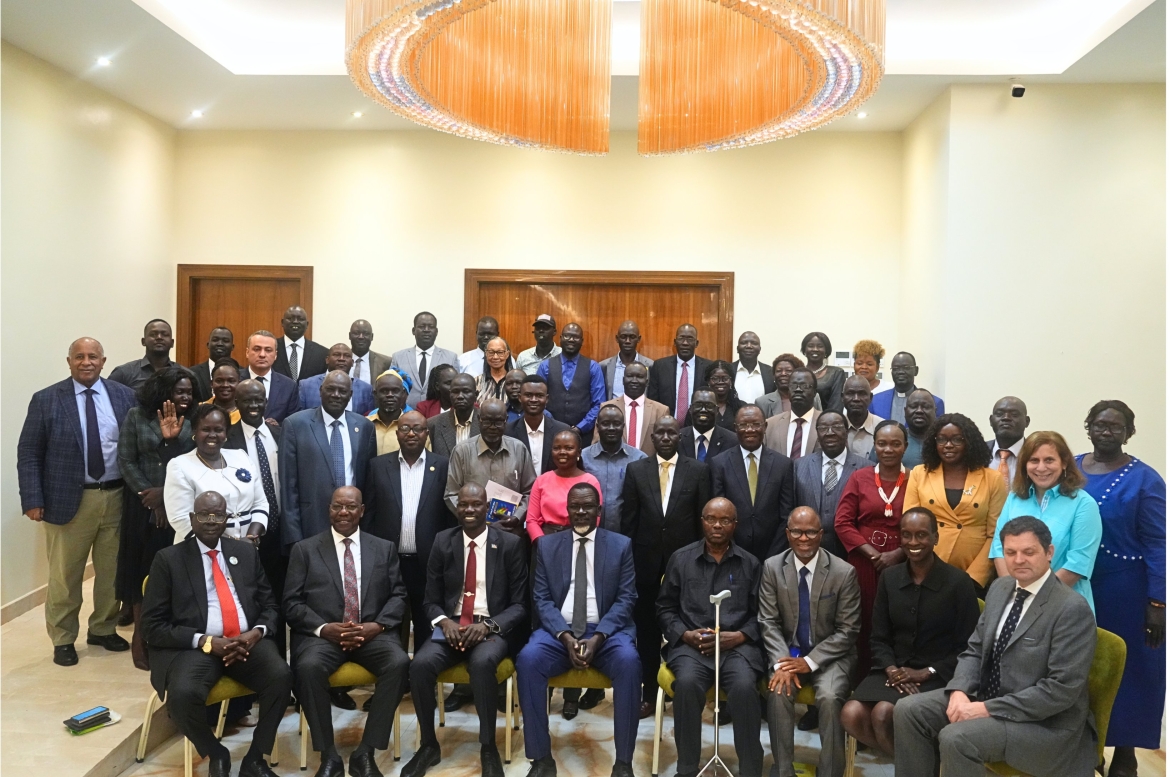As the implementation of the Revitalized Peace Agreement approaches a crucial period, the disengagement, cantonment and unification of armed forces in the Republic of South Sudan will be a “decisive milestone”, the Interim Chairperson of the reconstituted Joint Monitoring and Evaluation Commission (JMEC) has said.
In a statement (READ STATEMENT HERE: https://www.jmecsouthsudan.org/index.php/jmec-statements/item/404-statement-by-h-e-lt-gen-augostino-s-k-njoroge-interim-chairperson-of-the-reconstituted-joint-monitoring-evaluation-commission-to-the-3rd-rjmec-monthly-meeting-1-wednesday-23-january-2019-juba-south-sudan) delivered during the opening of the 3rdPlenary of the reconstituted JMEC in Juba on Wednesday, Ambassador Lt. Gen. Augostino Njoroge said,
“It is very important that all the armed forces of South Sudan are unified. With the rapid approach of the Transitional period, their unification will be a decisive milestone for this agreement, which is why no effort should be spared in achieving this.”
He added, “I expect that the work of the security institutions and mechanisms will quickly gather momentum, and that practical steps shall be taken to expedite the disengagement, cantonment and unification of forces.”
On mobilization of resources to support an uninterrupted implementation of the agreement, Ambassador Njoroge said,
“It is (for) the National Pre-transitional Committee and the incumbent Transitional Government of National Unity to take the lead in mobilizing all requisite resources for implementation, establish effective mechanisms for disbursing funds, and support the other mechanisms of the Agreement to carry out their tasks without delay.”
“We continue our outreach to the donor community in the search for funds to support implementation, and we reiterate our heartfelt thanks for those who have already made contributions, be it financially or in–kind,” he said.
By Amb. Lt. Gen. Augostino Njoroge
Saturday 12thJanuary 2019 marked the half–way stage of the 8–month–long Pre–Transitional period of the Revitalized Agreement on the Resolution of the Conflict in South Sudan (R–ARCSS), a date which falls just as we gear up for a busy and important year (2019). This is the year where, with God’s help and the hard work of everyone, we lay the foundations for a lasting peace in South Sudan.
As we end one year and begin another, it is natural to take stock of where we are. Accordingly, we should all understand that much has been achieved since the signing of the R–ARCSS on 12thSeptember 2018. By the same token, let us not overlook the fact that even reaching the level of consensus required for it to be signed was in itself a tremendous achievement.
We at the Joint Monitoring and Evaluation Commission (JMEC) are duty–bound to keep our fingers close to the pulse of progress. Progress is a difficult quantity to measure, but it is the currency we are dealing in, and it is the thing that we are all striving for. Make no mistake, we have it. To have a designated site for cantonment of forces in Yei River State is a very positive step, given the supreme importance of the unification of forces to sustainable peace.
At this half way stage of the Pre–Transitional period, we observe that there are twin challenges of time and funding. Having not enough of either is a worry that might well increase in the coming months.
However, we must do what we can with what we have and approach the tasks in a spirit of cooperation and positivity. This is something I am pleased to say I have observed. The degree of consensus marked by the signing of the Revitalized Agreement endures. It is the spirit of cooperation and positivity which governs how the implementation of the R–ARCSS is conducted. Without it, we have nothing, no matter how much time or funding there may be.
So while we benefit from having that, we must be mindful of our need to protect it, and we must turn our attention to the rest of the tasks because with progress comes expectations.
When we at JMEC call for the redoubling of efforts, it is from our position as custodian of the Agreement. Highlighting lack of progress or singling out proven violation is part of our tasks, and we are equally duty bound to lay the blame at the appropriate door. On behalf of the South Sudanese people, we will not shy away from calling for any given Party to perform their agreed duty to the highest standard.
We commend the recent steps taken to try and bring non–signatories into the fold of the Agreement, since continued incidents of violence, where they occur, commonly involve them. The signatories to the Agreement are observing the terms of the permanent ceasefire, which is very much to their credit. I must also say that the capital, Juba, has been commendably peaceful in the recent past.
However, the non–signatories should not be seen simply as a convenient scapegoat for all incidents. For example, there is the need for a full and impartial investigation into the loss of 19 lives at Gorom, west of Juba, on 2ndJanuary. The loss of any life is an affront to the spirit of safety and dignity the Agreement seeks to embed nationwide.
While the senseless prevention of the monitoring and verification body, CTSAMVM, from carrying out its essential work through mere blocking is one thing, the assault which took place at Luri on 18thDecember 2018 is another altogether.
We can only evaluate and assess progress through the flow of information and the objective verification of reported incidents. To block the conduct of this process and, even worse, assault, the verification team is completely unacceptable.
This incident should also be seen in light of the fact that the verification team members involved are military professionals from South Sudan’s neighbouring countries who came here to assist in bringing sustainable peace to the Republic of South Sudan.
The tasks required by the implementation matrix of the R–ARCSS are not uniformly distributed among the Parties to the Agreement. Some parties must shoulder substantial parts of the work, while others seemingly less so. However, it is all proportional to what was agreed, and areas that need extra work must be remedied by those who are particularly responsible for it. JMEC stands ready to support the Agreement Parties in undertaking their tasks.
These are the responsibilities of leadership that we are compelled to undertake. Although the component parts of the Agreement may be delivered by different groups, the success of the process depends on all of us playing our parts, and hence it is our collective duty to deliver it.
I wish you all a successful and constructive 2019. We at JMEC will continue to be unfailing in our mandate.
The author is the Interim Chairperson of the Joint Monitoring and Evaluation Commission (JMEC).
The Reconstituted Joint Monitoring and Evaluation Commission (RJMEC) has on Wednesday held its second plenary in Juba.
The Technical Boundaries Committee (TBC) has on Thursday held its inaugural meeting in the South Sudan capital, Juba.
The Joint Monitoring and Evaluation Commission (JMEC) on Wednesday said it is “extremely saddened and outraged” by the reports of rape and sexual assaults against women and girls, which allegedly occurred at Bentiu town, Rubkona County, in Unity State that occurred last week.
The reconstituted National Constitution and Amendment Committee (NCAC) has on Wednesday completed its deliberations on the incorporation of the Revitalized Agreement on the Resolution of the Conflict in the Republic of South Sudan (R-ARCSS) into the Transitional Constitution of the Republic of South Sudan (TCRSS) 2011 (as amended).
The reconstituted Joint Monitoring and Evaluation Commission (JMEC) has lauded the launch of South Sudan’s National Development Strategy (NDS) on Tuesday.
The media in South Sudan must ensure that they not only seek to report factually but also promote cohesion and unity among citizens, the reconstituted Joint Monitoring and Evaluation Commission (RJMEC) has said.
The Joint Monitoring and Evaluation Commission (JMEC) was reconstituted at a meeting convened on Monday 19 November 2018 by H.E. Dr Ismail Wais, the IGAD Special Envoy to South Sudan.
JMEC Interim Chairperson Ambassador Lt. Gen. Augostino S.K. Njoroge yesterday delivered a statement at the 66th Extra-ordinary Session of the IGAD Council of Ministers on the status of the implementation of the Revitalized Agreement on the Resolution of the Conflict in the Republic of South Sudan (R-ARCSS).
The Secretariat of the Joint Monitoring and Evaluation Commission (JMEC) has the honour to inform the Parties to the Revitalised Agreement on the Resolution of the Conflict in the Republic of South Sudan (R-ARCSS), other South Sudanese stakeholders, the regional and international community and the public at large that the Chairperson of the IGAD Council of Ministers, H.E Dr. Workneh Gebeyehu has appointed the current JMEC Deputy Chairperson, Ambassador Lt General Augostino S.K Njoroge to continue as Deputy Chairperson of R-JMEC and to act as the Chairperson of the JMEC until a new Chairperson is appointed by the IGAD Assembly of Heads of State and Government.





